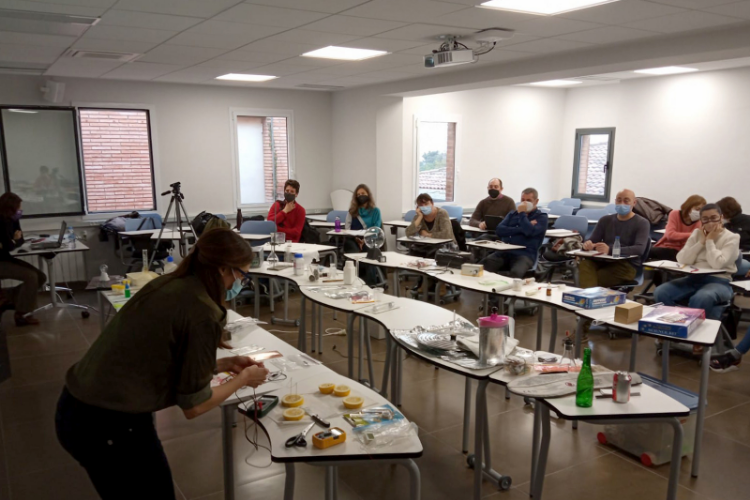On 11 and 12 March, the IQS campus was the setting for the 2nd Teaching Science in Secondary Education Conference organized jointly by the Official Association of Doctors and Graduates in the Arts and Sciences of Catalonia, the CESIRE Centre with the Government of Catalonia’s Department of Education, IQS, and the Catalan Chemistry Association with the Institut d’Estudis Catalans.

On 11 and 12 March, the IQS campus was the setting for the 2nd Teaching Science in Secondary Education Conference organized jointly by the Official Association of Doctors and Graduates in the Arts and Sciences of Catalonia, the CESIRE Centre with the Government of Catalonia's Department of Education, IQS, and the Catalan Chemistry Association with the Institut d'Estudis Catalans.
The aim of the conference, which could be attended in-person at the IQS campus or online, was to learn about and analyse the new science curricula within the framework of the amended Spanish Education Act and, at the same time, to share educational proposals, strategies, and resources with teachers so they can carry out the changes established by the new objectives of the curriculum in the classroom.
Aimed at teachers who teach science subjects both at the baccalaureate and compulsory secondary education levels, the conference consisted of three lectures and 12 workshops, distributed throughout cross-disciplinary demonstration workshops, experimental workshops, and sessions on good classroom practices related to teaching and competency evaluation.
Mr Xavier Yáñez, head of the Secondary and Baccalaureate Curriculum Department within the Department of Education, presented the opening lecture “New curriculum, new opportunities. Analysis of the new curriculum". Then, Dr Neus Sanmartí, professor emeritus with the Autonomous University of Barcelona, gave the lecture "Citizenship and sustainability: challenges of scientific learning". The closing lecture was given by Dr Oskar González Mendia, professor with the Faculty of Fine Arts at the University of the Basque Country (UPV/EHU), entitled "Science hidden within art".
Presented as parallel sessions, the workshops held during the conference addressed the following topics: "Can masks be reused? Scientific knowledge as an ally during the pandemic"; "Plastics and sustainability"; "Put on a lab coat"; "STEAMS: think, do, redo"; "3D printing to learn science"; "Immerse yourself in marine scientific knowledge: plankton, clines, and resource networks"; "Uncovering the trails to reconstruct the past: volcanic ashes"; "Physics and Chemistry experiments to encourage third-year compulsory education secondary school students"; "Gases and sparks in the laboratory"; "Metals in mobiles: an elementary problem!"; "The redox processes in electrochemical cells"; and "Let's learn how to design a nanomedicine-based vaccine".










